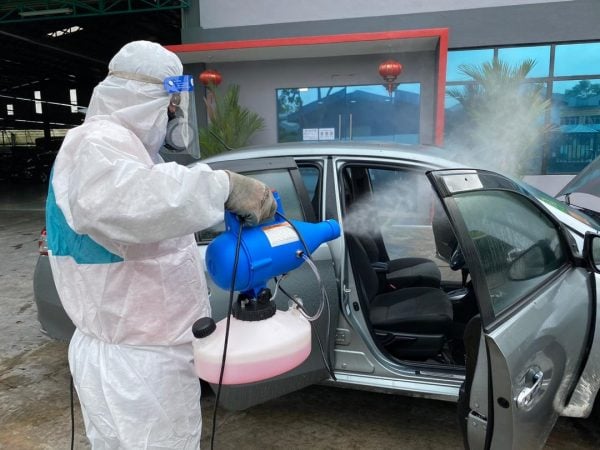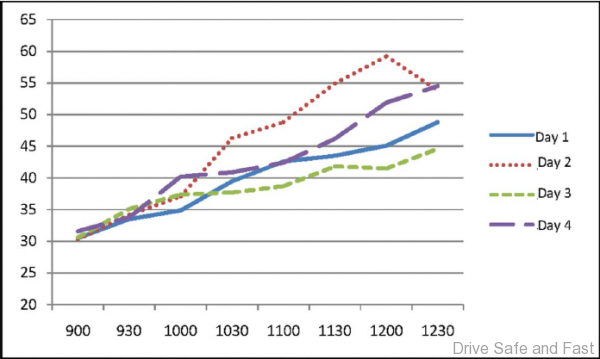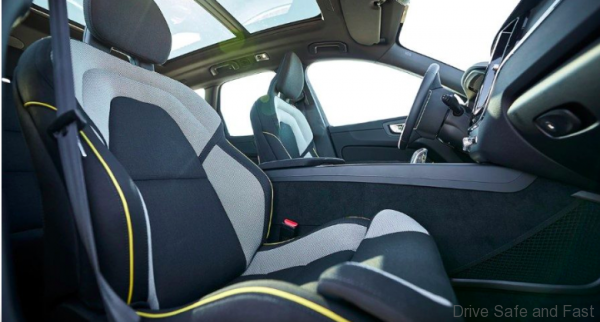Every one is basically on the same page when it comes to COVID-19. We’re all sick of it, and we want things to start going back to normal as soon as possible. That means finding effective ways to stop its spread. And according to Ford, superheating car cabins may be effective.

The company have given police interceptor vehicles in the US the ability to essentially crank the heat up in their vehicles up for a short amount of time with no body in the car.

The key numbers: 56 degrees Celcius for 15 minutes.

Now, to be clear, parking your car under the hot sun will NOT make you safe against coronavirus particles. Malaysian researchers investigating how cars get hot under our weather conditions seems to show that it CAN get very hot, but how hot it gets in your car is inconsistent from day to day. Even their data seemed to vary from day to day. It will of course vary between cars and many other factors will affect the results as well.

SO DON’T PARK YOUR CAR UNDER THE SUN AND THINK YOU’RE SAFE from VIRUS!
But, that being said, that amount of heat for that amount of time seems to be more effective at ridding your car of COVID-19 than, say, an N95 air filter.
“Our studies with Ford Motor Company indicate that exposing coronaviruses to temperatures of 56 degrees Celsius, or 132.8 degrees Fahrenheit, for 15 minutes reduces the viral concentration by greater than 99 percent on interior surfaces and materials used inside Police Interceptor Utility vehicles,” said Jeff Jahnes and Jesse Kwiek, laboratory supervisors at The Ohio State University department of microbiology.

When Ford does it with their Police Interceptors, they have specific sensors to make sure the car’s interior is at least 56 degrees celcius for a full 15 minutes and they use the in-build climate control to get it there. Without those sensors and that heating equipment, you simply cannot achieve reliable results.

But if you want to sun your car once in a while, you can. Just be aware that you may damage your leather and releasing much worse toxins into your cabins. So, you may be killing off coronavirus particles, but you’re likely releasing things that cause other very serious illnesses. The link above explains it best. Of course, we shouldn’t have to tell you not to leave people or pets in the car if you intend to leave it in the sun.
Here’s the press release with more.
PRESS RELEASE
The solution is simple: Bake the vehicle’s interior until viruses inside are inactivated. Using Police Interceptor Utility’s own powertrain and climate control systems, this software solution enables vehicles to elevate passenger compartment temperatures beyond 133 degrees Fahrenheit1, hotter than Death Valley on its hottest day, for 15 minutes – long enough to help disinfect vehicle touchpoints.
Once activated, the vehicle’s powertrain and climate control systems work together automatically to elevate passenger compartment temperatures. The software warms up the engine to an elevated level, and both heat and fan settings operate on high. The software automatically monitors interior temperatures until the entire passenger compartment hits the optimal level, then that temperature is maintained for 15 minutes.
To research the effectiveness of this sanitization method, Ford worked closely with The Ohio State University to determine the temperature and time duration needed to help inactivate the COVID-19 virus.
Law enforcement will have multiple ways to monitor progress. Hazard lights and taillights will flash in a pre-set pattern to notify when the process has begun, then will change at the end to signal completion. The vehicle’s instrument cluster will also indicate progress. A cool-down process brings the temperature down from its highest points.
This heated process can be used by law enforcement regularly to help sanitize vehicles when officers are not inside. When used in conjunction with sanitization guidelines approved by Centers for Disease Control and Prevention, flooding the passenger compartment with elevated air temperature can help reach areas that may be missed by manual disinfecting procedures. Heat has the ability to seep into crevices and hard-to-reach areas, helping reduce the impact of human error in applying chemical disinfectants.
Ford conducted software operational trials in vehicles owned by the New York City Police Department, Los Angeles Police Department, Michigan State Police, Massachusetts State Police, Boardman Township Police Department in Ohio and Seminole County Sheriff’s Office in Florida.

